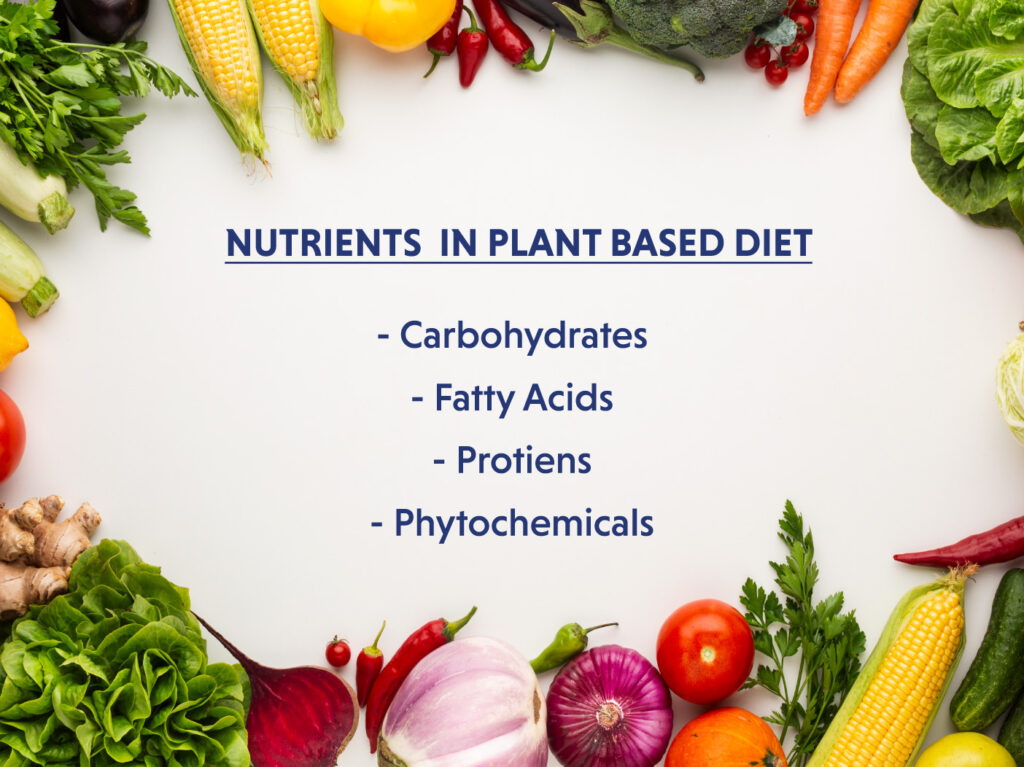Benefits of Whole Food Plant-Based Diet
The gut health of an individual directly affects his or her overall health. Therefore, being attentive to your gut functioning will help you avoid many problems. Your gut health depends upon its microbiome composition. The gut microbiome or gut microbiota is the collection of trillions of bacteria present in your gut. The composition of the gut microbiota can be altered by a lot of factors. These can be present both inside and outside our bodies.
Our gut rapidly responds to dietary changes. Therefore, it becomes important to understand what foods promote a good gut microbiome, keeping it balanced. Studies have been conducted to show the benefits of a whole food plant-based diet on gut health. Plant-based foods help maintain the diversity and a beneficial ecosystem of bacteria in the gut.
Plant-based diets can be categorized as vegan and vegetarian diets, commonly including fruits, vegetables, grains, legumes, nuts, and seeds. These types of diets are associated with a lower occurrence of chronic diseases, mainly because plant-based diets are rich in dietary fiber, polyunsaturated fatty acids, phytochemicals, and vegetable proteins.
MAIN NUTRIENTS PRESENT IN PLANT-BASED DIET

1) CARBOHYDRATES
Carbohydrates are the most prominent macronutrients in the human diet, generally higher in the diets of vegans and vegetarians. These nutrients are not degraded in our small intestine but are later fermented by the microbiome in the colon. These fiber-rich foods prevent chronic diseases like type-2 diabetes and obesity.
2) FATTY ACIDS
Although fat content is very low in plant-based foods, some amount is derived from unsaturated fatty acids, which help improve the gut composition.
Individuals who intake more animal-based foods are chronically exposed to a high-fat diet. This leads to an increase in some harmful bacteria. These harmful bacteria may further increase intestinal permeability, which can activate inflammatory reactions.
3) PROTEINS
Don’t fall for the myth that only animal products contain high amounts of protein. Foods like grains, vegetables, nuts, and seeds can also provide the same proportion of proteins as compared to diets that include meat. Soy products are also a good source of proteins that are equally high in fiber, magnesium, potassium, and folate. The protein content is also essential in modifying gut microbiome composition and improving its functioning.
4) PHYTOCHEMICALS (PLANT CHEMICALS)
Plant-based foods like vegetables, fruits, and nuts are rich in phytochemical content. These are very essential for our health
- Protect our cells and DNA from damage that may cause cancer.
- Delays the growth of some cancer cells.
- Help in regulating hormones.
- Reduces inflammation and uplifts our immune system.
BENEFITS OF WHOLE FOOD PLANT-BASED DIET
There are a number of advantages for those who opt for plant-based diets over animal-based diets. This is not only a perception but a proven fact. We will list some benefits of a whole food plant-based diet on the individual’s gut health.
1) AIDS IN DIGESTION
You may be surprised to know that studies have reported improved gut health by eating plant-based diets in as little as 5 days. The fiber-rich food adds weight to the stool and makes it easy to pass out of the body. This diet will also help you eliminate digestive issues like abdominal pain, diarrhea, and constipation.
2) IMPROVES IMMUNITY
The gut microbiome is responsible for maintaining the immunity of our body. Therefore, increasing the count of good microbes leads to improved immunity.
A balanced plant-based diet rich in different kinds of fiber offers food to different beneficial microorganisms. Hence, the growth of a variety of microbes is enhanced, which improves the diversity of gut microbiota.
The healthy gut microbiota further improves the intestinal barrier. This intestinal wall prevents toxic compounds or harmful bacteria and viruses from entering the bloodstream. Therefore, eating unhealthy foods which are ultra-processed or animal-based foods increases gut permeability. This later triggers the inflammatory immune response.
3) REDUCE INFLAMMATION
Inflammation can be a symptom caused by some underlying chronic diseases. A study conducted in 2015 has shown an early reduction in inflammatory scores in individuals consuming plant-based diets than those eating fat-rich diets and animal products.
To be more precise, plant-based sources of protein have been found to decrease chronic inflammation. For instance, nutrients in these foods tend to fight rheumatoid arthritis pain, stiffness, and swelling.
4) REDUCE CANCER CELLS GROWTH
Plants produce many phytochemicals which protect cells from damage. Plant-based foods like fruits, vegetables, legumes, nuts, and whole grains are also packed with many important nutrients. Hence, they help prevent cancer by boosting your fiber consumption. People following vegan or vegetarian diets are less likely to gain excessive weight, and thus, chronic diseases like diabetes and obesity can be avoided. Wherein obesity is also one of the causes of cancer, as per many studies.
5) PREVENT THE GROWTH OF OTHER PATHOGENIC BACTERIA
Diets high in sugar and low in fiber drive the growth of harmful microorganisms. This is because pathogens feed on nutrients derived from excessive sugar. These harmful microbes increase inflammation, and long-term inflammation causes damage to the intestinal barrier.
Whereas, when we take fiber-rich food, fermentation of fiber occurs in the intestine. This fermentation makes the intestinal environment acidic and makes it hard for the pathogens to grow. Thus, you should try to bring some modifications to your diet to encourage the growth of good bacteria instead of those that can cause disease.
6) PREVENT ANXIETY AND DEPRESSION
High-quality plant-based diets have proved to be protective against depressive symptoms in vegans and vegetarians. Plant products trigger the chemical response in our brain, releasing serotonin or the happy hormone. Less stress and anxiety consequently lead to more productivity at work.
POINT TO REMEMBER
Conversion of an individual from an omnivore to a healthy high-fiber herbivore cannot be done overnight. Your microbiome and digestive processes need time to adjust to the dietary changes Therefore, you must take a step back and make the transition over a period of six weeks or so. Some common problems faced in the initial phase of transition are bloating and digestive discomforts like diarrhea and constipation.
CONCLUSION
It’s not imperative to exclude animal products entirely from the diet. However, considering the health benefits of a whole food plant-based diet and the intake of plant products must be enhanced to change bacterial composition that can help promote an individual’s health. Download the JOYSCORE APP for happy and healthy living.
To know more about the Benefits of Whole Food Plant-Based Diet Download the Joyscore App Now!
Download on the Appstore
Get it on Google Play



